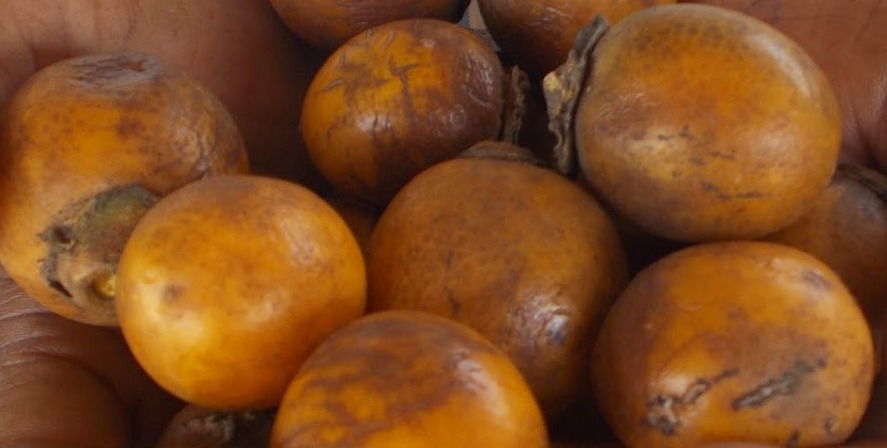Keonjhar: Every summer, markets and roadsides in Keonjhar district get flooded with a fruit locally known as ‘Kendu’. This summer is no different either.
Keonjhar district is also known as Kendujhar. And the district gets its name from this fruit. In fact, ‘Kendu’ is a fleshy fruit which is available here abundantly during summer season. It equals lemons in size but tastes sweet.
Since Kendu trees in hills and forests here are naturally grown ones and their fruits get ripen naturally, traditional ayurvedic practitioners say consumption of Kendu is good for health.
During this time of the year, one can see tribal people selling ‘Kendu’ in markets and roadsides. The ripe fruits fall from trees on their own. The tribal people living in forested areas collect them in baskets from early in the morning. They then come to Keonjhar town and other nearby markets to sell them. They instead of selling them by scales sell them in heaps with each heap selling for Rs 20.
Even though ‘Kendu’ is one of the main fruits available in the district and has a demand in other districts and neighbouring states as well, nothing has so far been done to create a proper market for this fruit. Since there is no cold storage or warehouse, these tribal people, mostly women, have to sit in scorching sun for hours to sell all their fruits.
Most days, their waiting for customers for hours goes in vain. When they find their fruits still lying unsold, as they can ill afford waiting till afternoon as they have to return their villages, they have no option left but to either sell them at throwaway prices to traders or just throw them away on roads. In that case, they don’t make adequate money corresponding to the labour involved. Some even struggle to manage the travelling cost.
According to senior lecturer Sumant Naik, traders buy these fruits from the traditional sellers at cheap rates and transport them to other districts as well as neighbouring states and rake in bucks. So if the administration intervenes and makes arrangement for their marketing, the demand for the fruit will go up and the traditional sellers will get the proper price for the fruits.
Though Kendu trees are found across the district, they are abundant in jungles and forests of Bansapal, Telkoi and Harichandanpur areas. However, it has been a matter of great concern that the number of trees has drastically fallen owing to reasons such as climate change, wild fire and soil erosion. If steps are not taken for their preservation, it will be just a matter time when these forest-based berries and fruits become scarce, some local residents observed.
PNN
